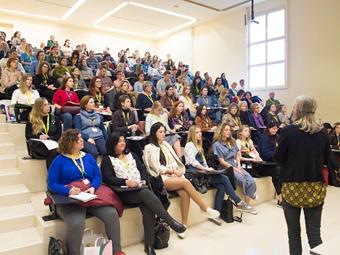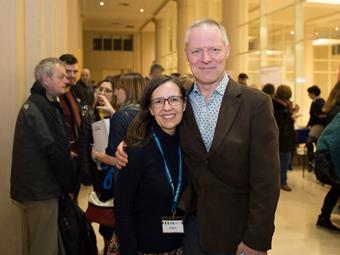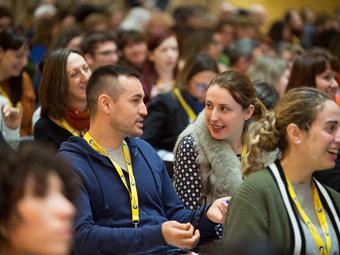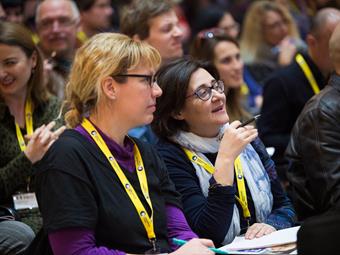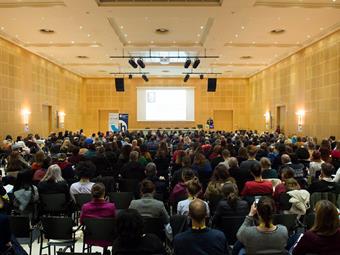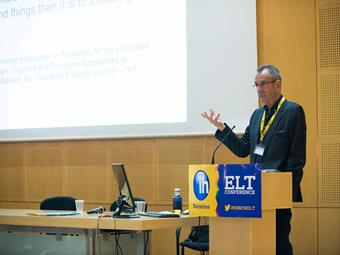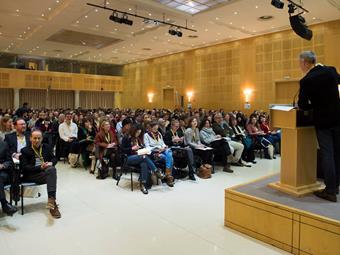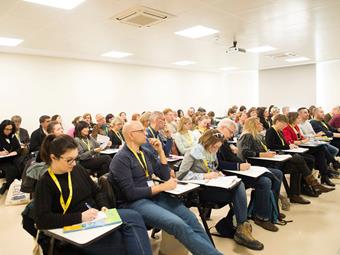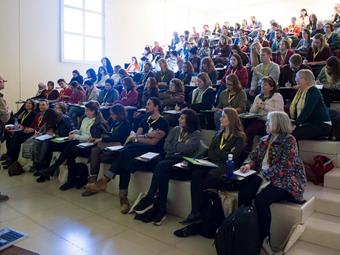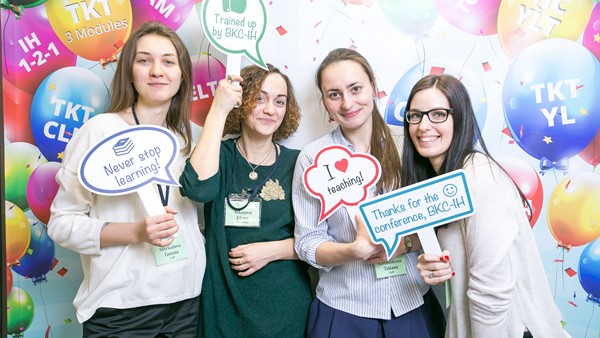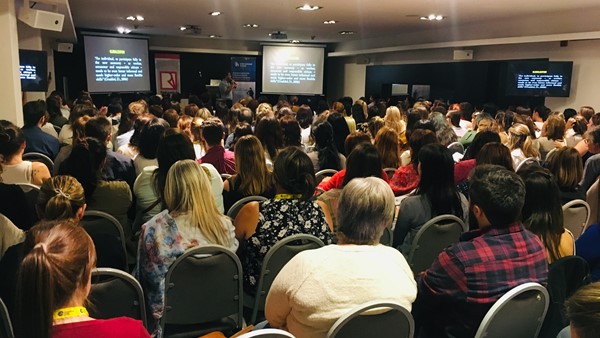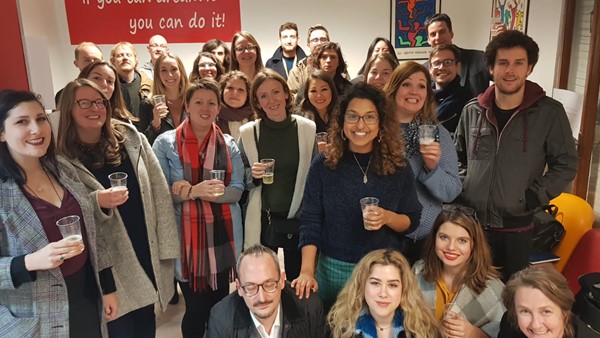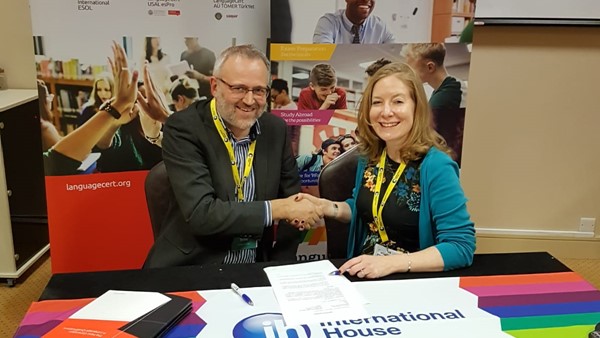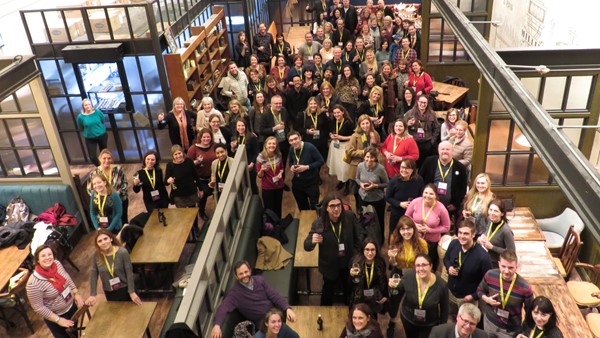IH Barcelona hosted its annual ELT conference on February 8 and 9, 2019, offering practical ideas as well as reflection on theory to teachers, trainers and ELT managers.
There were local and international speakers attending, which gave the event a variety of viewpoints, with participants keen to hear ideas and share their thoughts with each other.
In total, around 500 people attended from 30 different countries, with many from Russia and the Ukraine, and one person travelling from the Kurdistan region of Iraq.
The first plenary speaker was Dr Susan Barduhn, who started the event, talking about developing cross-cultural awareness in the monolingual classroom. After her, Richard Cauldwell, author of Phonology for Listening: Teaching the Stream of Speech (2013) and A Syllabus for Listening: Decoding (2018), talked about training teachers to deal with authentic recordings, reflecting a change in thought about how teachers approach listening skills in the classroom.
Scott Thornbury, a regular speaker at IH Barcelona conferences, spoke about encouraging everyone to consider second-language acquisition theories, discussing performance-based approaches. Follow this, Gail Ellis, a young learner specialist and author of Learning to Learn English, The Primary English Teacher’s Guide, Tell it Again!, shared her thoughts on how learning to learn is an important part of most curricula but often gets left at the abstract level in official documents.
Throughout the two days, almost 30 workshops took place, with some being so popular that it was standing-room only, particularly for the IATEFL BESIG (Business English Special Interest Group) stream.
The technology stream was also very popular. In the IATEFL LTSIG (Learning Technologies Special Interest Group), Sophia Mavridi’s session on film-making in the classroom encouraged the audience to try making short clips during the workshop to show how it doesn’t have to take too much time and effort to produce film, and how it can help develop language learning.
In the IATEFL LAMSIG (Language and Management Special Interest Group), the challenges for EFL management about costing, or how to set and achieve goals effectively, were discussed, as well as being up-to-date with concepts like flipped learning.
The conference had something for everyone in the world of language teaching, from young learner teachers, to those focused on the adult classroom, to those in more specialised areas.
Dr Angi Malderez held the final plenary, asking everyone to think about how student needs are met and the concept of “response-ability”. She drew on ideas from the two days of the conference and suggested ways of how everyone could become better “noticers”.
All this was rounded off with the raffle prize draw, with gifts from the sponsors and a tablet as special prize to celebrate 30 years of the CELTA course!
